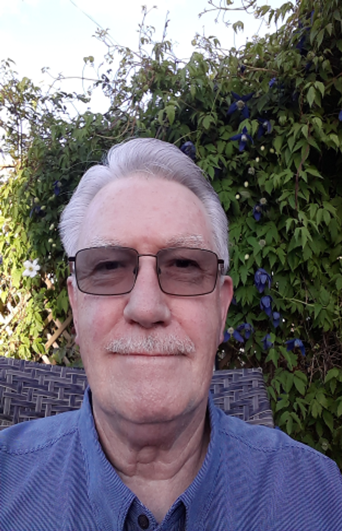David Owen
ECG Bulletin July 2022
Formerly founder and managing director of TreatChem Ltd, David Owen is a retiree with a strong interest in environmental chemistry, and especially industrial wastewater systems. David still holds an interest in the company as a majority shareholder.
What inspired you to become a scientist?
I have always been interested in science, ever since childhood. I had a very good teacher in secondary school, and I seemed to have an aptitude for it. The education system, at that time, encouraged competitive learning, which I took to.
What inspired you to become a scientist?
I have always been interested in science, ever since childhood. I had a very good teacher in secondary school, and I seemed to have an aptitude for it. The education system, at that time, encouraged competitive learning, which I took to.
|
How did you come to specialise in science for the environment?
After graduating from the University of Birmingham with a Ph.D. in organo-fluorine chemistry, I decided that a laboratory career was not for me. After a spell working in the commercial department of British Steel, I was tempted by an advert in the local paper to join a major American water treatment company. I was instantly hooked by their keen attitude and problem-solving culture. They taught me much about industrial water treatment, and I became fascinated by the need to understand the technologies required to solve the problems when new legislation demanded better results. Could you describe your current job? I am a retiree, but I keep getting involved by referral. I maintain my activity as a consultant, usually by looking at the big picture (where the company technologists get bogged down in detail). I still have things on my books from Ireland and the United States, although Covid had a major impact on activity for the last two years. I also keep an eye on what is happening in my own limited company. |
What advice would you give to anyone considering a career in environmental chemistry?
The field is enormous, so choose your area carefully. There are many routes into academia and industry. Always choose an aspect of the environment sciences and/or environmental regulation, which interests you and which matches your academic and practical skills. Be seen by your supervisors as a good learner.
What are some of the challenges facing the environmental chemistry community?
Complexity is probably the main issue. Every time, as an expert, you feel you are getting to grips with a problem, remember that good communication is essential to win over support for apparently ‘simple’ new ideas. The average person in the street has a very low boredom threshold when confronted with jargon-laden ‘tech-speak’.
What is the most rewarding aspect of your career so far?
People. The smile on the face of a satisfied customer who had a nightmare problem sorted to their satisfaction.
If you weren’t a scientist, what would you do?
I would have to do something completely different such as a yachtsman. However, that would require me to learn a lot more about ocean racing.
And what do you do when you are not working?
As a retiree, I revel in being a member of the ECG and several other RSC Interest Groups. But most of all, I really enjoy going away in this country, to new areas and take short breaks, staying in a cottage, with my wife and dog.
The field is enormous, so choose your area carefully. There are many routes into academia and industry. Always choose an aspect of the environment sciences and/or environmental regulation, which interests you and which matches your academic and practical skills. Be seen by your supervisors as a good learner.
What are some of the challenges facing the environmental chemistry community?
Complexity is probably the main issue. Every time, as an expert, you feel you are getting to grips with a problem, remember that good communication is essential to win over support for apparently ‘simple’ new ideas. The average person in the street has a very low boredom threshold when confronted with jargon-laden ‘tech-speak’.
What is the most rewarding aspect of your career so far?
People. The smile on the face of a satisfied customer who had a nightmare problem sorted to their satisfaction.
If you weren’t a scientist, what would you do?
I would have to do something completely different such as a yachtsman. However, that would require me to learn a lot more about ocean racing.
And what do you do when you are not working?
As a retiree, I revel in being a member of the ECG and several other RSC Interest Groups. But most of all, I really enjoy going away in this country, to new areas and take short breaks, staying in a cottage, with my wife and dog.


